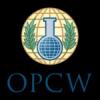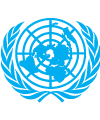State Disinformation, Artificial Intelligence and Chemical Weapons Non-Proliferation
The evolving security landscape, characterized by the rising tide of disinformation operations, rapid technological advancements, and the persistent spectre of chemical weapons use, presents an unprecedented challenge to international peace and security. The deliberate weaponization of falsehoods—exacerbated by the capabilities of artificial intelligence (AI)—has emerged as a formidable instrument of geopolitical warfare.







